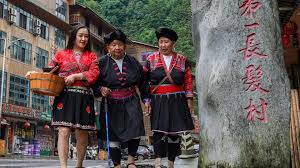Two musicians’ brotherhood, an epitome of China-Kazakhstan friendship

Astana: In Almaty, the largest city of Kazakhstan, a street bears the name of the renowned Chinese musician Xian Xinghai. Nearby, another parallel street honors the Kazakh musician Bakhytzhan Baikadamov.
Among the many heartwarming tales of friendship between the people of China and Kazakhstan, the story of these two musicians, who met and forged a bond during the turbulent time of war, stands out.
It was often quoted by Chinese President Xi Jinping during his visits to Kazakhstan as epitomizing the profound friendship between the two countries.
At the outset of the Great Patriotic War, Xian, a renowned Chinese composer, arrived in Almaty after experiencing much hardship.
By then, Xian was worn down by poverty and illness and had no one to turn to. Fortunately, the Kazakh composer Baikadamov took care of Xian and provided him with the comfort of a home, Xi said in a speech delivered at Kazakhstan’s Nazarbayev University in 2013.
“It was some time in the middle of November 1942. When my father was passing by a fence, he saw a thin man sitting on his suitcase, wearing a light sweater and holding a violin,” Baldyrgan Baikadamova, Baikadamov’s daughter, said about the fateful encounter.
“My father spoke Kazakh and Russian, the composer responded in English and French. But it was obvious that the Chinese musician really needed help and had nowhere to go. So my father just took his hand and led him to us,” she said.
Baikadamov, well-versed in Kazakh folk music, was instantly captivated by Xian’s compositions.
They soon became bosom friends and devoted brothers despite their different nationalities, Xi noted in a signed article in the Kazakh media on Tuesday as he began his state visit to the Central Asian country.
“Xian and my father always sat together. My father played the dombra (a Kazakh two-stringed plucked musical instrument), and Xian took notes for the melody. Then Xian played the violin and my father checked whether Xian was right or not. That’s how they learned the Kazakh national folklore and culture together,” the daughter said.
Their collaboration led to several joint musical projects that blended Chinese and Kazakh musical traditions, and it was in Almaty that Xian composed his famous works Liberation of the Nation, Sacred War and Red All over the River.
He also wrote the symphony Amangeldy based on the exploits of the Kazakh national hero. These pieces served as a rallying call to fight Fascists and proved immensely popular with the local people.
Xian was finally overcome by homesickness and suffered from lung disease. He died in a hospital in Moscow at the age of 40 in October 1945. Xian did not have the chance to return to China.
The news of Xian’s death devastated her father, said the daughter.
The friendship between Xian and his Kazakh friend became the subject of a movie named “The Composer,” the first film co-produced by China and Kazakhstan and screened in 2019.
In the same year, a special joint movie screening event was held in Astana, Beijing, and Macau, Xian’s birthplace. Students from universities including Kazakhstan’s Astana International University, China’s Tsinghua University, and the University of Macau watched the film together via video link.
Irsaliyev Nurali, one organizer of the joint screening event, told Xinhua that he and his friends were moved by the friendship between Xian and Baikadamov.
“If more people (in our two countries) can cultivate this kind of friendship and relationship, the future will indeed be a golden one,” he said.





